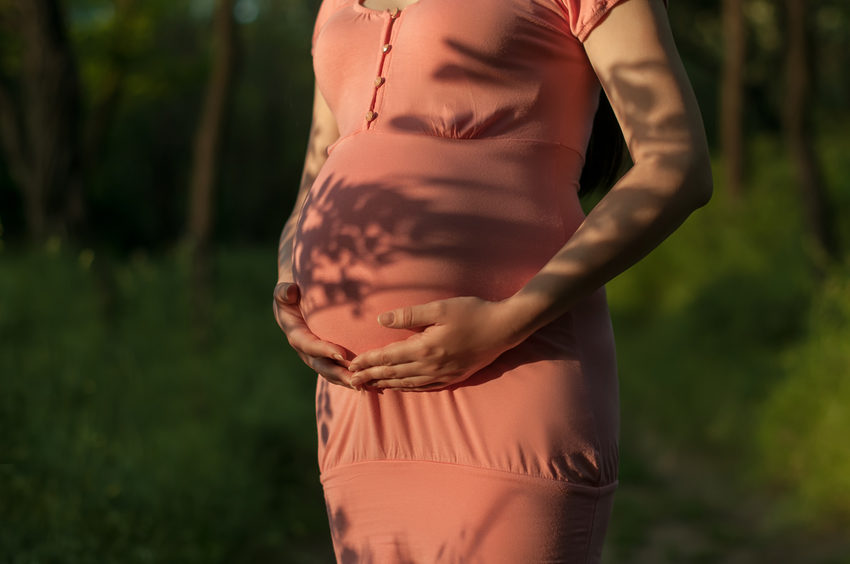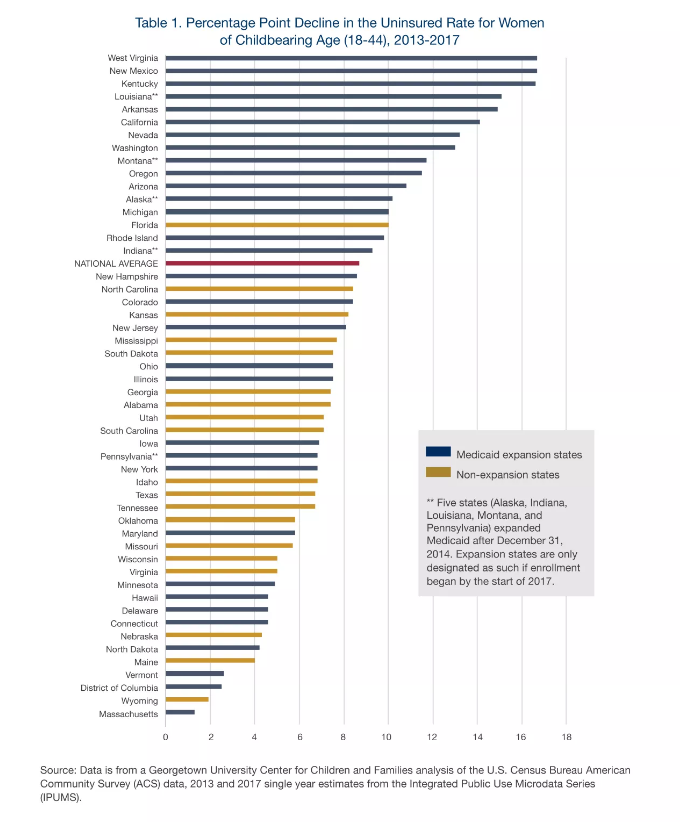
Share On Social!
The rate of uninsured childbearing-age women in Texas (39.4% Latino) is more than double the national average.
Over 25% of women ages 18 to 44 are not covered, according to a new study from the Georgetown University Center for Children and Families. The national average? 12.3%.
This disparity reflects the state’s Medicaid expansion policy choices, Joan Alker, the center’s executive director, told KUT News.
“Low-wage workers don’t have offers of affordable health insurance in a state like Texas, perhaps more so than other states,” Alker said.
Insurance Access and Overall Health
Researchers set out to discover whether or not state Medicaid expansions through the Affordable Care Act would impact the rate of insured women.
Their results illustrate a clear message: Where Medicaid was not expanded, the rate of uninsured women of childbearing age are nearly twice as high (16%) as compared to those who have expanded Medicaid (9%).
Other states that did not expand the program and have the highest percentages include:
- Alabama (4.1% Latino)
- Alaska (7 % Latino)
- Florida (25 % Latino)
- Georgia (9.3 % Latino)
- Idaho (12.3 % Latino)
- Mississippi (3 % Latino)
- Nevada (29% Latino)
- North Carolina (9.2% Latino)
- Oklahoma (10.3 % Latino)
- South Carolina (5.5 % Latino)
- Texas (39.4% Latino)
- Wyoming (9.6 % Latino)
10 out of these 12 states have not expanded Medicaid.
This is bad news for Latinos, especially those in Texas as they are set to be the largest racial/ethnic population in the state by 2022. Additionally, Texas has the highest number of children without health insurance in America.
But wait, there’s more.
Latinos are already the most uninsured group in the United States.
Medicaid and Expansion Impacts
Women & Infants
The research shows that expanding Medicaid has notable improvements on rated of coverage and overall wellness — specifically for women of childbearing age.
Moreover, better well-being for mothers also supports the health of infants.
In states that expanded Medicaid under the Affordable Care Act also showed a reduction in infant mortality at double the rate of those that did not.
These findings are increasingly significant to Latino families since premature babies in that demographic have a 2-to-4-times greater risk of severe neonatal health problems compared to their white counterparts.
Additionally, not only have maternal mortality rates doubled in Texas, but Latinas in Texas suffer poor health outcomes from receiving a cesarean section.
“It is a shame that politics continues to win the day over the health of women and children,” Laura Guerra-Cardus, the deputy director for the Children’s Defense Fund, told KUT.
Texans & Latinos
In states that passed Medicaid expansion between 2013 to 2015, the rate of uninsured Latino adults dropped 14%.
What’s worse is in some states, public insurance is not only limited but hard to acquire. In Texas, which did not expand Medicaid, there are strict income limits to qualify for Medicaid.
“You have to be so poor in Texas that you have to have under $300 a month to be eligible as a parent for the Medicaid program,” said Alker.
“That is one of the lowest eligibility levels in the country.”
Moving Forward
Currently, Texas’s House Bill 744 aims to allow low-income mothers to keep their Medicaid insurance coverage for 12 months after giving birth. The bill passed the Texas House last month, but it now sits in the state Senate after its failure to receive a committee hearing.
HB 744 garnered support from state Democrats, but not Republican officials, according to the Texas Observer.
The current law removes women from the program just two months after giving birth.
“We just need to do a better job at this,” Guerra-Cardus said. “And unfortunately, this session – as it wraps up – is showing us that health care coverage again is not a priority for Texas leaders the way it should have been.”
By The Numbers
142
Percent
Expected rise in Latino cancer cases in coming years




